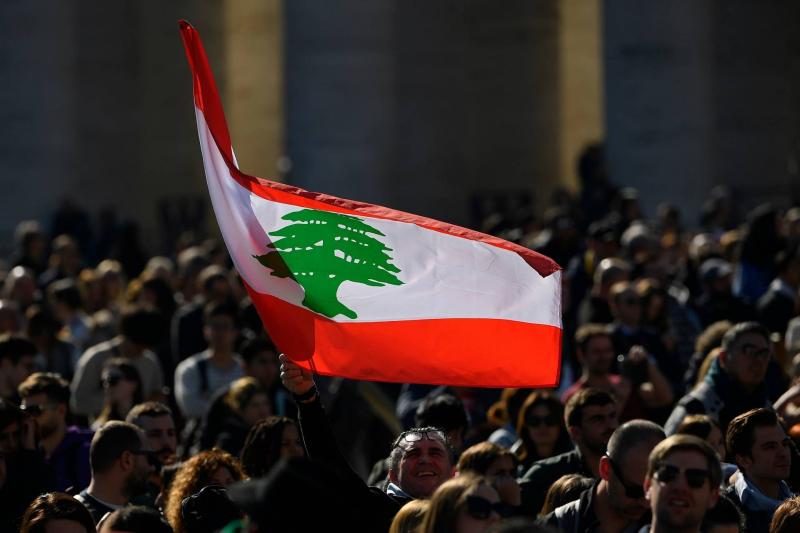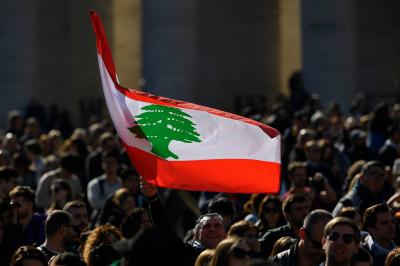To the tune of the Kalthoumian song "I Have Trained My Eyes to Your Vision," the French presidential envoy, Jean-Yves Le Drian, traversed the Lebanese political forces, hoping to make even a slight breakthrough in the ongoing presidential crisis since General Michel Aoun's term ended. The French diplomat preferred to carry some results back to President Emmanuel Macron, who, in turn, hopes to garner international regional consensus on a plan, idea, or settlement that may emerge during the annual meeting on June 6 in Normandy, commemorating the 80th anniversary of the famous Allied landings that marked the end of World War II against Nazi Germany.
Naturally, according to circulating news, the Normandy meeting will be followed by a summit in Paris specializing in discussions among the attendees regarding common files and methods to confront them, with Ukraine's war with Russia and the Gaza conflict being the most prominent, especially after Israel's support in the annihilation of the Palestinian people, in addition to discussions about other regional issues. Meanwhile, the French president hopes for Lebanon to receive its share of the discussion. For these reasons, he held a call on the 22nd with Saudi Crown Prince Mohammed bin Salman to discuss the situation in the region, including Lebanon.
President Macron still hopes for his country to play a crucial role in finding solutions to the Lebanese crisis. He has tried several times since the Beirut port explosion but has not succeeded. Everyone remembers the French initiative and the visits that followed which did not bear fruit. For these reasons, and due to Macron's belief and the deep French conviction for historical political and economic reasons, the French president continues in his endeavor and will not retreat, believing that what France has offered and contributed for Lebanon should not be abandoned now. Instead, it should be pursued until France derives at least a little of its presence and influence.
Notably, the Normandy meeting about 20 years ago between Jacques Chirac and George W. Bush occurred amidst the backdrop of UN Resolution 1559 and the ensuing international movements and Lebanese events, the most significant and catastrophic being the infamous extension of General Emile Lahoud's term and the subsequent assassination of President Rafik Hariri, followed by momentous and significant developments. This year, the Normandy summit convenes without major indicators of significant developments so far. However, it may be an important juncture that could lay the foundation for or influence the future of Lebanon.
It is a summit to address major issues from Ukraine-Russia to the Gaza war and the ongoing genocide of the Palestinian people, along with other issues in the region. There is nothing preventing it from touching upon Lebanon. However, the slim expectations stem from the fact that the current American president is a departing leader moving toward the end of his term, without strong and decisive indicators of a return to the White House.
Jean-Yves Le Drian reiterated to those he met from Lebanese political forces what he had previously stated, warning of the disappearance of Lebanon as we know it. In this warning, he does not raise an exaggerated or impossible issue, even though he uses different words than before. During his visit, he stated that the political Lebanon we know may vanish, leaving only geographic Lebanon. Naturally, the mountains of Lebanon will not dissolve, as they are not made of salt or sugar; rather, what may deconstruct and fade away is the state of Lebanon and the political formula that has existed since 1920, then in 1943, and later renewed in 1990 through the Taif Agreement. Especially in light of the growing and escalating Lebanese creativity in discussing esoteric matters such as whether angels can be born through dialogue or consultation, and what type of marriage is pertinent: pleasure, customary, or legal?
However, Jean-Yves Le Drian, the professional diplomat, returns to his master empty-handed. When asked by his superior about the result, he will undoubtedly inform him that the waters that were thrown on him were stagnant and foul!
In reality, the answer Le Drian carries back to Paris was articulated by presidential candidate Sleiman Frangieh in his recent talk with New Television, where he clearly stated: "Hezbollah wants a president today rather than tomorrow, but it will not concede certain specifications, and I will not withdraw. If our team wants this matter, they must come and justify their request. But I doubt they will do so," affirming that "our team will not ask me to withdraw. When we reach a certain settlement, it will be based on what follows." He added, "The balances have not changed yet, awaiting the forthcoming settlement."
According to Frangieh, the upcoming settlement follows the war in Gaza, which seems to be extending indefinitely. After Frangieh's statements, elements of the picture were continued by Hezbollah Secretary-General Hassan Nasrallah, stating, "Israeli massacres should serve as a lesson for us and for those betting on the international community and international laws to protect Lebanon."
In other words, Nasrallah's statements align with Frangieh's, suggesting that the solution will not come from waiting for the Western community and its promises. More precisely interpreted, Nasrallah considers those who bet on what may arise from the Normandy summit and similar meetings to be repeating past mistakes and bets that will not lead to results.
Is there room for the success of the idea of "standing consultation" in the Parliament, which will be followed by consecutive open sessions after the failure and collapse of the idea of dialogue around the table chaired by Berri?




